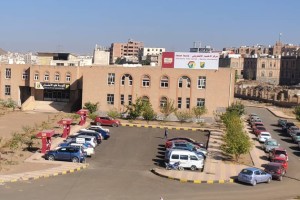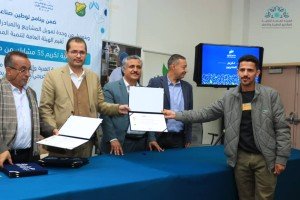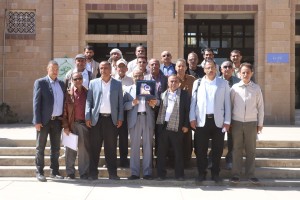Seminar 2 for Master’s Thesis Proposal of Mr. Khalil Al-Mahqani
- Categories news
- Date May 8, 2025
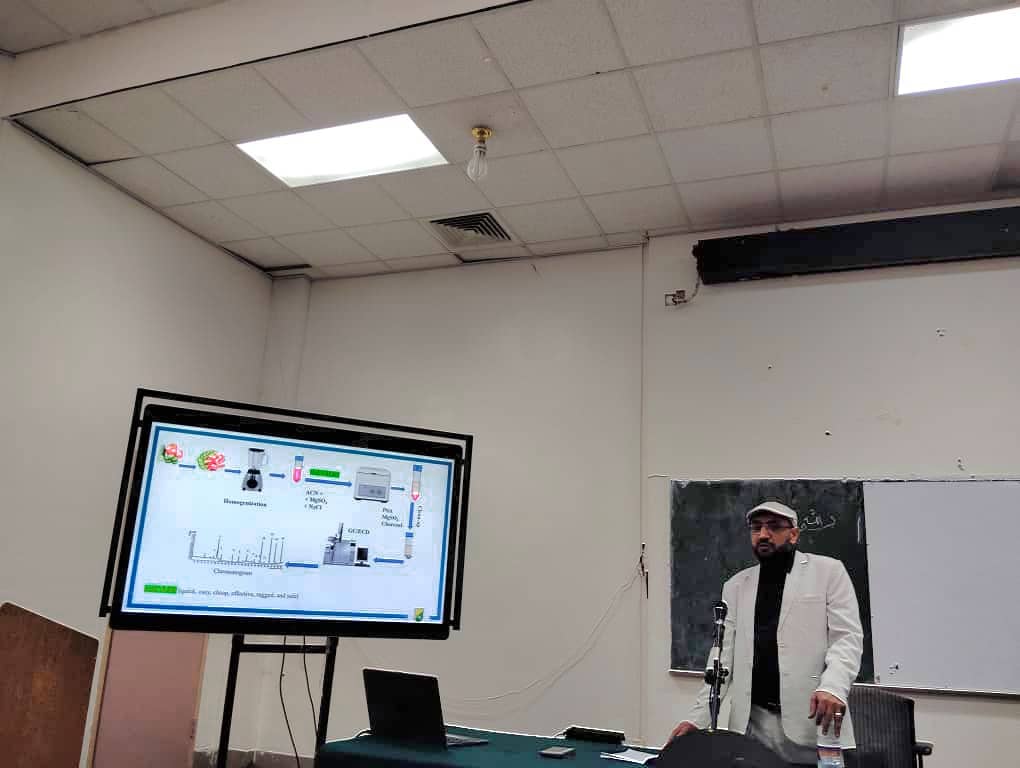
Tuesday, Dhu al-Qa’dah 9, 1446 Hijri, corresponding to May 7, 2025.
Department of Plant Protection at the Faculty of Agriculture, Food, and Environment Sciences, Sana’a University, held seminar 2 presented for Mr. Khalil Mosed Mohammed Al-Mahqani.
During the session, the candidate provided a detailed presentation of his Master’s thesis proposal titled:
“Multiresidues Analysis of Pesticides in Cucumber and Tomato in Sana’a”
This thesis is supervised by Prof. Jalal Abdulilah Awad, a specialist in pesticide analysis and environmental pollution.
In his presentation, the candidate addressed the tools and materials utilized in the study, in addition to the key findings anticipated. The presentation included an explanation of the study’s significance, the research problem, previous studies, the main objectives of the study, and the methodologies employed in conducting his scientific experiments.
He also reviewed the results obtained through the analytical instruments and chemical materials used, which were implemented in the Pesticide Residue Laboratory at the General Directorate of Plant Protection in Ministry of Agriculture.
This study focuses on the validation of a multi-residue pesticide analysis method and its application to analyze samples of cucumber and tomato.
Gas Chromatography equipped with an Electron Capture Detector (GC-ECD) technique was used to detect pesticide residues and determine their concentrations in cucumber and tomato samples collected from various protected agriculture areas and open fields in Sana’a Governorate, as well as central markets in Sana’a City. The validation process included selectivity, linearity, limits of detection (LOD), limits of quantification (LOQ), accuracy, and precision to ensure the reliability and reproducibility of the results.
The analysis results of the collected cucumber and tomato samples were compared with the Maximum Residue Limits (MRLs).
Following the presentation, the council members and attendees engaged in a rigorous scientific discussion of the findings, providing their valuable observations and necessary recommendations.
This session (Seminar 2) is a fundamental requirement that the candidate must successfully complete to obtain the department’s approval on the study’s findings before proceeding to the final thesis defense, during which the defense and viva-voce committee will be formed.
The session was attended by the Head and faculty members of the Department, as well as the Integrity Committee, a number of faculty members from other departments, and graduate students from the faculty, in an interactive academic atmosphere characterized by academic enrichment and constructive discussions.
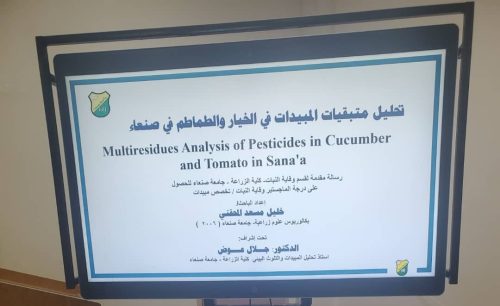
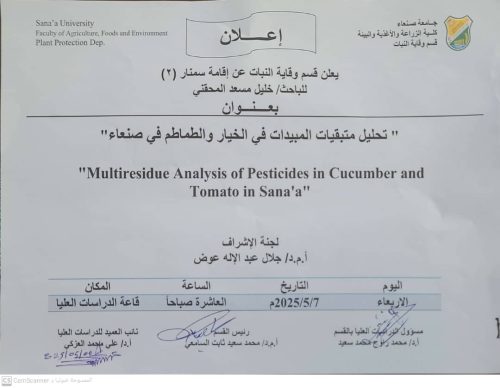
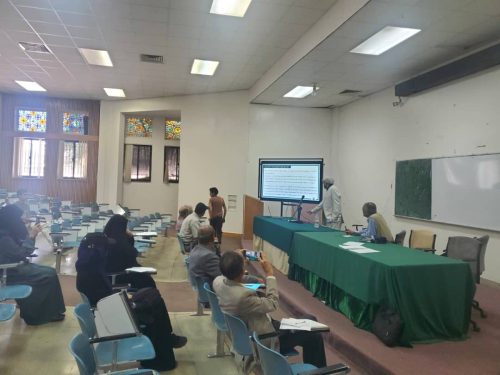
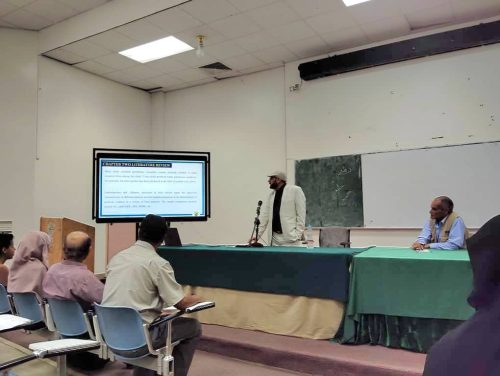
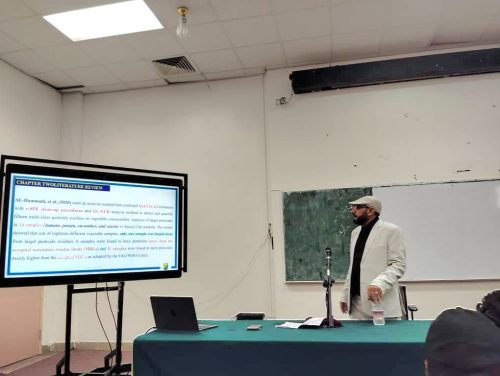
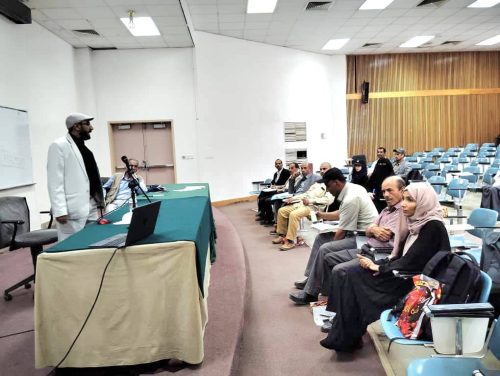
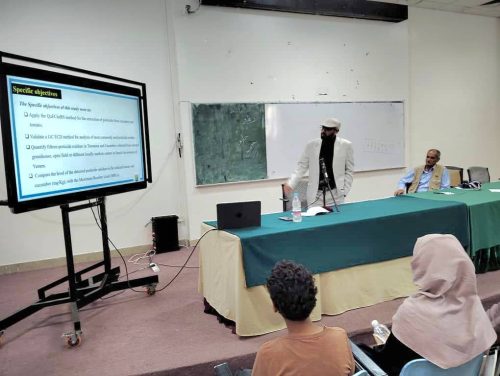
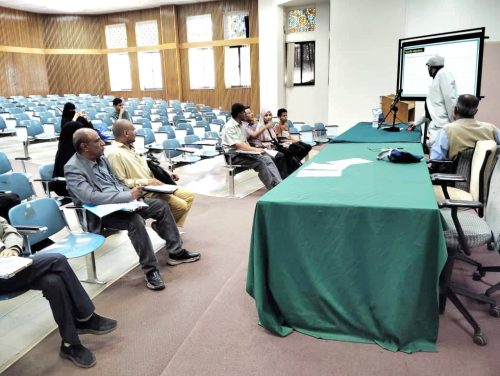
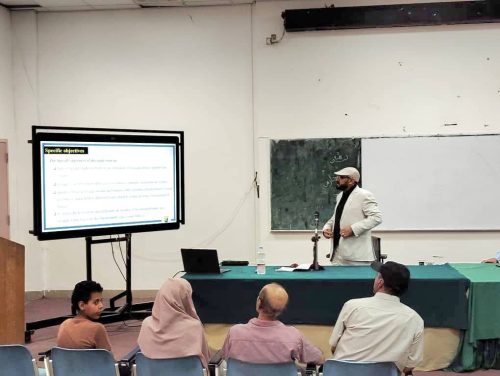
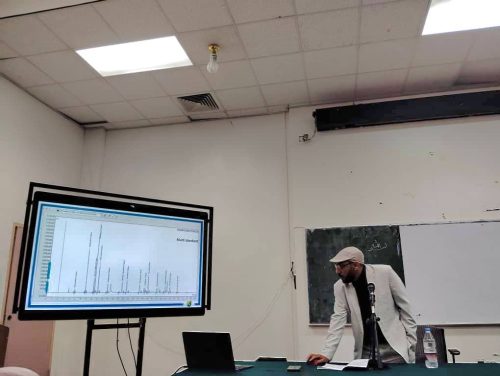
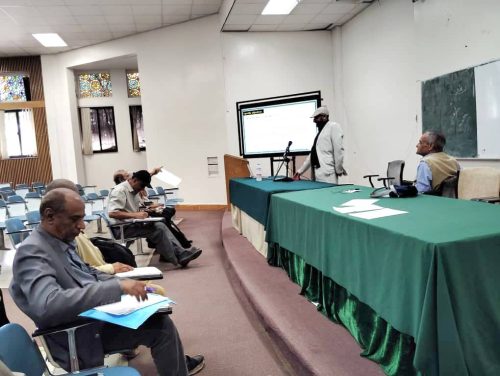
Next post
Public Seminar (2) Held for MA Thesis Proposal: Ms. Juman Khaled Nashat Shawkat
May 19, 2025

